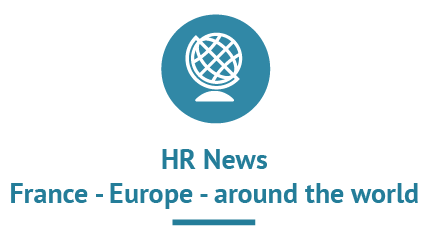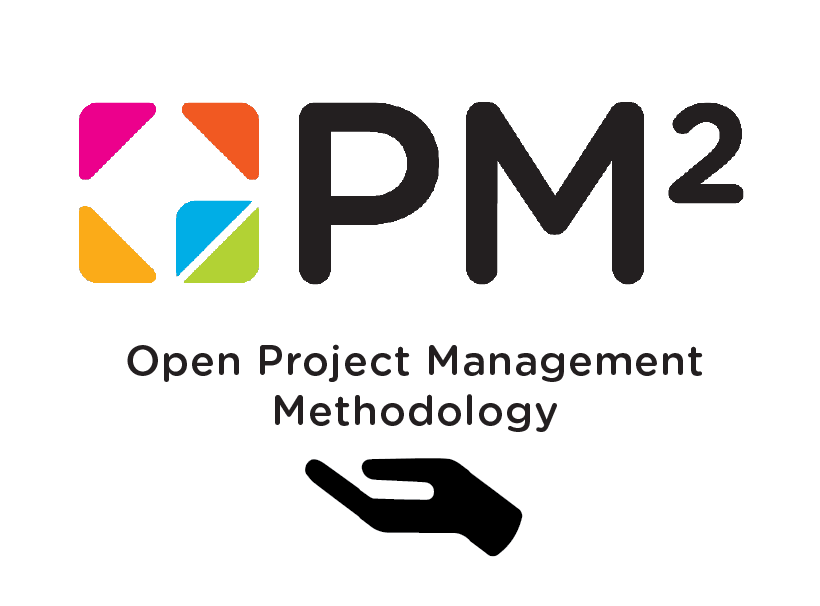|
If you are having trouble viewing this email, open it with your internet browser,
download the PDF version
or contact us.
|
 |
| #19 - November 2019 |
| PDF version - Manage your subscription - Search - Archives |

|
|
vision RH is a newsletter published by the French Directorate General for Administration and the Civil Service (DGAFP). It draws on information sources and reports issued by public administrations, the private sector, international organisations and the press, in several different languages. It aims to provide a broad view of current human resources and civil service initiatives.
|
|

|

|
| Project work offers a real opportunity to overhaul government departments | |||||
|
As a direct result of the changing face of public service mandates and the need to better factor in citizens’ expectations and requirements in highly constrained contexts, organisation in “project mode” is taking shape in administrations. Departments must be able to reconcile hierarchical structures with cross-cutting teams in order to bolster effectiveness. A number of countries, like France, are introducing strategies geared towards this and have no qualms in overhauling working and HR management methods. Although approaches may differ (as they are often closely correlated to the status of the relevant staff), they all have the same goal, namely to increase agility, flexibility and responsiveness. Denmark is one of the trailblazers for this organisational model. For several years, its innovation laboratory (MindLab) has helped national, regional and local government departments to build multi-disciplinary teams. Since late 2018, all departments have been able to use the Teamunivers educational tool, which enables clear identification of the project teams’ composition and the challenges to be met, to choose the most appropriate organisational solution. In Ireland, the recent Civil Service Renewal Plan set up a Project Management Leaders and Advisory Service (PMLAS). It coordinates a network of 200 senior managers who have broad autonomy and own resources (including new jobs under contracts for individual assignments). A best practice guide and a toolbox are available online on a special portal. With its Free Agents programme, Canada is gradually building up a permanent pool of federal public servants who are available only for short-term assignments. Belgium also offers temporary assignments as part of its Special Federal Forces and Talent Exchange programmes. Several studies have highlighted the fact that the new generations favour agile organisation, even making it a key criterion for the appeal of the public sector. Some countries are capitalising on this opportunity and are redefining jobs. In the United Kingdom, the civil service has set up a Project Delivery Profession with an eye to targeted hiring. It offers a learning curriculum, mentoring, courses with accredited qualifications and customised professional support. There is also a Project Delivery Fast Stream providing direct access to management positions. It is important that project-related assignments should be recognised and valued to the same extent as regular activities. Germany has made this choice as civil servants (contract or established staff) receive a bonus for working in a project team provided they carry out a special activity for a limited period. This voluntary participation is also factored into internal promotion systems. As an e-government pioneer, Estonia now strongly encourages the use of functional mobility for projects (at all hierarchical levels) as this is seen as the “best way for scaling up skills”. Lastly, for several years, the European Union has been using project work in its institutions and has shared the PM² Methodology Guide, which it has drawn up in a more comprehensive version, with all the Member States. The guide includes information deriving from best practices and standards accepted at global level. |
|||||
|
|||||
|
|
|||||

|
|||||

|

|

|
| CAF 2020: a further step towards excellence | |||||
|
As the first European quality management instrument specially tailored for the public sector, the Common Assessment Framework (CAF) is a general, easy-to-use and accessible model which enables analysis of all aspects of organisational excellence and the introduction of a culture of permanent improvement. This 5th version aims to address fresh issues such as agility, diversity, sustainability, innovation and digitalisation. |
|||||
|
|||||
|
|
|||||

|
|||||
| An enhanced version of the professions register for the French local civil service | |||||
|
As an essential resource for managing skills and supporting mobility, the French local civil service’s professions register is changing and now includes new functionalities with the addition of new “terms of employment” and “change factors” categories. A “proximity of professions” application guides HR departments and employees in defining career goals and building a support programme. |
|||||
|
|||||
|
|
|||||

|
|||||
| A HR innovation laboratory for tomorrow’s Latvian government | |||||
|
#GovLabLatvia is an initiative set up by the government to pave the way for the reform of the Latvian public sector. Within one of three laboratories, the government’s HR experts, with help from qualified external players, define and plan the organisational structure to be rolled out. The focus is on creating innovative services in the public interest in an overhauled working environment, by placing the onus on agility, collaboration and speed. « The deliverable provided enables the development of a human resources management system based on user needs »
|
|||||
|
|||||
|
|
|||||

|
|||||

|

|
| A single website for all competitive examinations for the Italian civil service | |||||
|
As announced during the reform to make hiring more professional and regionally-based, the website on which all government departments are now obliged to post notices of competitive examinations, the composition of panels and lists of successful applicants is now online. Candidates can also follow the progress of their applications from their personal account on the website. |
|||||
|
|||||
|
|
|||||

|
|||||
| The Spanish government’s “talent capturing” project | |||||
|
Publicising job opportunities in the civil service by presenting assignments and career development options is the goal of the sweeping programme for the recruitment of talented individuals being implemented by the government’s HRD. It takes the form of conferences in higher education and vocational establishments throughout Spain at which speakers highlight the advantages of working in the public sector. |
|||||
|
|||||
|
|
|||||

|
|||||
| An internal mobility support unit for Austrian civil servants | |||||
|
In tandem with the new public sector job exchange, an internal mobility support unit (Mobilitätsmanagement) is available to federal government employees. It manages a database of candidates having applied to change position and helps them with procedures (setting up profiles, offers of positions and interviews). It is also tasked with regulating under- and over-staffing. « Our goal: motivated and satisfied emplyees, allowing them to improve their professional development »
|
|||||
|
|||||
|
|
|||||

|
|||||

|

|
| Public employer responsibility training for Swedish managers | |||||
|
Although they have broad autonomy for human resources management, public employers must convey common values to their staff. To this end, online training modules have been developed for them. These include a series of topic-based podcasts. This is a medium that is in great demand from managers as it is the best adapted to their time constraints. |
|||||
|
|||||
|
|
|||||

|
|||||
| “Lead for the future”, the Belgian federal leadership strategy | |||||
|
The federal government is conducting joint discussions on the concept of leadership by sharing experiences. To this end, and to ensure optimum representativeness, meetings are held between staff of all ages, from all hierarchical echelons (whether having management duties or not) and from all types of departments. The results of the work will be used as the basis for a new strategy. |
|||||
|
|||||
|
|
|||||

|
|||||
| Collective bargaining agreement on digital technology in the German federal government | |||||
|
In order to adequately address the changes relating to the rollout of digital technology, the Directorate-General for the Public Service at the Federal Ministry of the Interior and the two major trade union federations (DBB for established civil servants, VerDi for contract staff) are in the process of drafting a collective bargaining agreement that will regulate issues such as specific qualifications, involvement in new forms of work as well as the right to disconnect and data protection. « Collective agreement on digital impacts ensures security and builds trust in changing times »
|
|||||
|
|||||
|
|
|||||

|
|||||

|

|
| A network of mediators in the British civil service | |||||
|
The UK’s civil service has structured the organisation of professional dispute resolution through mediation as it is convinced of its necessity. A national Civil Service Mediation Champion has been appointed. She coordinates a network of trained and qualified mediators who work across all departments. They are independent, work in complete confidentiality and help find a common and positive way forward for the parties. |
|||||
|
|||||
|
|
|||||

|
|||||
| The American federal government has opened a website for its teleworkers | |||||
|
More and more federal employees are opting to telework and they now have a special website. It contains all information (legal, regulatory and practical) and resources (training, guidance, reports) concerning this way of working. The aim is also for the website to be a discussion forum and to provide answers to questions raised by both employees and managers. |
|||||
|
|||||
|
|
|||||

|
|||||
| A new working environment in the Canadian public sector | |||||
|
As it is confronted with an ever-changing professional environment, the government has unveiled the Activity-Based Workplace initiative. The aim is to adopt a global approach to organisation in order to adjust to the specific circumstances of each entity. The approach factors in collaboration, sustainability, effectiveness, an inclusive environment, digital technology and flexibility while safeguarding the wellbeing of teams and respecting their wishes. « Each employee plays a key role in transforming the workplace because all of them and the way they work matter »
|
|||||
|
|||||
|
|
|||||

|
|||||

|

|
| Airbus is constantly expanding its feedback culture | |||||
|
Although it is still not an integral part of French management culture, when it is understood and put to good use, feedback makes a positive contribution to improving organisational structures. The European aeronautics and defence group has drawn on its sites in English-speaking countries to integrate feedback into its HR processes. A biannual procedure has been rolled out to receive feedback from the field on a regular and similar basis. In this respect, a poll on employee commitment and a 360° assessment for managers are conducted alternately to rapidly pinpoint scope for improvement. As regards mobility and hiring, the company (which will have to renew 40% of its staff over the next seven years) is striving to adopt the same approach: • an in-house mobile application listing all the group’s vacancies has a new category with all the staff’s (moderated) opinions • being aware of the rising influence of social media and websites1 on which employers are assessed, Airbus has asked its HR departments to respond so that no criticism is left unanswered This approach is part of reciprocal trust-based strategy which has led to a drop in resignations . |
|||||
|
|||||
|
|
|||||

|
|||||

|

|
| “Zero tolerance” for inappropriate behaviour in the New Zealand civil service | |||||
|
New Zealand’s public sector, which has achieved international recognition and is regularly put in the spotlight for its integrity, is able to count on the unwavering trust of citizens. However, as highlighted by the State Services Commissioner, it is even more crucial that everyone is able to thrive in their workplace. The government has made protecting staff a priority.1 A survey conducted in thirty or so government departments revealed that the number of complaints for inappropriate behaviour that should give rise to disciplinary action (discrimination, harassment, bullying, etc.) do not reflect the actual situation. In conjunction with Worksafe NZ, the national workplace health and safety regulator, and trade union federations, the State Services Commission has drawn up new model standards which are now binding on government departments. The clearly stated goal is to “break the silence” which often exists where the person who is the subject of the complaint is in a position of trust or authority. .
The system, which is called “Positive and Safe Workplaces”, is based on a set of minimum standards for organisations, managers and staff. To specify what is expected of everyone, the authors have clearly detailed the roles of the various parties, underscoring the need for a constructive, inclusive and uncompromising approach: • managers must undertake to provide a response to all complaints. This means that they must record them in a special database for monitoring purposes. • employees who are subject to inappropriate behaviour are encouraged to speak up and ask for help, in particular from HR departments • colleagues who are bystanders to inappropriate behaviour are bound to report it whilst respecting the confidentiality of persons. As “whistle blowers”, they will have the same protection as the victims. All managers will have to undertake compulsory training in the prevention of psycho-social risks and the criterion of irreproachable behaviour on this point will be a deciding factor for career progression. With this fresh step forward which draws on its ethics model, New Zealand is demonstrating that there is no place for these practices . |
|||||
|
|||||
|
|
|||||

|
|||||

|
|
Share
|
||||
|
||||
| SUBSCRIBE - UPDATE YOUR SUBSCRIPTION - ARCHIVES - RSS - UNSUBSCRIBE |
|
French Directorate-General for Administration and the Civil Service (DGAFP)
Publication Manager: Thierry LE GOFF Managing Editor: Xavier MAIRE Editor-in-chief and Autor: Jean-François ADRIAN Layout and graphic design: Jean-François ADRIAN and Aphania. The texts of the publication do not reflect the point of view of the DGAFP
In accordance to the French Act n°78-17 of 6 January 1978 on information technology, data files and civil liberties and to the european General Data Protection Regulation (GDPR), your personal data is stored securely and you are entitled to access, correct and delete them. To do so, you should send an e-mail to (contact-visionrh@kiosque.bercy.gouv.fr) or write to DGAFP: 139, rue de Bercy - 75012 Paris; France.
Reproduction is authorized with mention of the source © DGAFP 2020 / N° ISSN: 2606-7528. |
|
|





